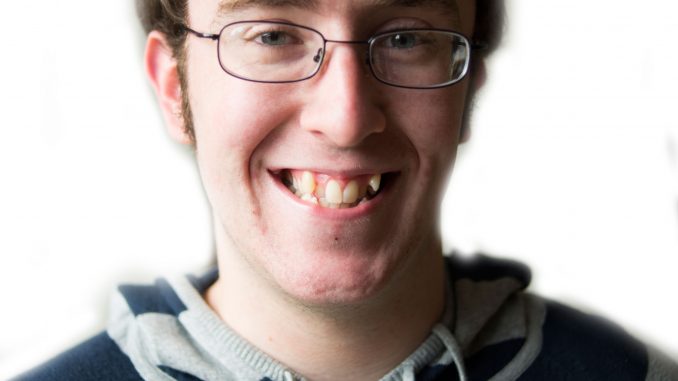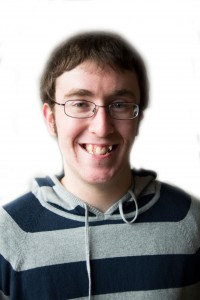
 brandtThe president of the United States may take office after his inauguration, but not Neil Theobald. Though he was inaugurated with much fanfare, he has been Temple’s president since January. What has he done in that timeframe?
brandtThe president of the United States may take office after his inauguration, but not Neil Theobald. Though he was inaugurated with much fanfare, he has been Temple’s president since January. What has he done in that timeframe?
The issue that Theobald, an educational finance expert, mentions most often in his speeches is the affordability of education. He’s off to a good start. During the 2013 fiscal year, both his leadership and the work of former president Richard Englert helped the university increase funding from donors by 45 percent to $65.8 million. Also implemented under Theobald is the larger scholarship program for the incoming class, which has drawn some criticism from upperclassmen.
Regardless, Temple provides a service to the area: It offers a variety of degrees, and thus keeping tuition affordable is important, to say the least. It’s what Russell Conwell would have wanted. Affordability is a large part of why Temple is here.
In his seven and a half months as president, Theobald has already campaigned for maintaining affordability. In late February, his testimony before the Pennsylvania House Appropriations Committee contributed to the state’s decision not to decrease its $139.9 million annual contribution to Temple.
Theobald said the money, a significant portion of Temple’s budget, pays almost $10,000 of tuition per student. Adding to that, tuition increases for this year were limited to $400 for in-state students and $600 for out of state students, and the goal is a tuition freeze for next year. In Theobald’s inauguration speech, he noted that there is an affordability pact in the works as well.
The largest funding-related problem before Theobald right now is the condition of Temple’s medical program. Earlier this month, Philly.com reported the Temple University Health System’s debt has engorged to $1.26 billion. Moody’s Investors Service has downgraded Temple’s credit outlook to “negative” as well. To add insult to injury, U.S. News and World Report has named Temple’s medical school graduates in the Top 10 of the most indebted in the nation.
Theobald has not specifically addressed the debt or medical school students yet. His notion of affordability has, so far, pertained more to undergraduates.
Theobald is also tasked with improving another debt-related problem: Temple’s four-year graduation rate, which is around 40 percent, according to Forbes. When testifying before the Pennsylvania House Appropriations Committee, Theobald said Temple would be providing more incentives for students to graduate in four years, noting that the majority of student debt is due to living costs rather than tuition.
“It is clear to me that [local, state and federal politicians] are looking at Temple to produce the graduates who will become our nation’s leaders and/or faculty with research breakthroughs that will enhance people’s lives,” Theobald said at a Board of Trustees meeting on May 14.
The climax of Theobald’s inauguration speech was the announcement of a $50 million plan to fund research into a broad range of subjects, such as urban development and cancer treatment.
Theobald started his administrative reorganization when he appointed Hai-Lung Dai as provost. To fill Dai’s seat as dean of the College of Science and Technology, Theobald appointed Michael Klein, who is a member of the National Academy of Science, one of the highest honors for scientists.
He appointed Gregory Anderson to head the College of Education, whose résumé includes a professorship at Columbia University and a deanship at the University of Denver’s Morgridge College of Education. David Boardman, a former executive editor of the Seattle Times, now heads the School of Media and Communication after more than 30 years in the newspaper business. The College of Health Professions and Social Work currently has an interim dean. There is no question that Theobald has hired well-qualified experts to lead Temple’s schools.
Theobald is an open, sociable president. He has not quite shown himself to be as lovable as New York University’s John Sexton, who is ranked among Time magazine’s 10 best college presidents and is known for hugging many of his students. This is a healthy challenge to live up to.
So far, Theobald has been seen at sporting events, even at smaller sports such as field hockey. He’s also been spotted on campus grilling and humorously referred to the grill that he brought with him from Indiana as his “fourth child.” Some say Theobald is a radical departure in personality compared to Temple’s past president, Ann Weaver Hart, who was known to stay in her office and did not have a large presence on campus. She also rarely spoke to The Temple News or any other Philadelphia newspaper.
Indeed, Theobald is a huge improvement in this respect. He encourages students to email him, and he said his office is open to the Temple community. “I love to stop, chat, learn their priorities and what can we do better,” he told University Communications. “That’s always my primary question. Any suggestions they have, I want to talk to students.”
At the Board of Trustees meeting on June 20, Theobald said that this academic year, Temple will begin looking into increasing the amount of campuses abroad, with possible sites in the Middle East, China, Korea, India and Singapore. Many prestigious colleges, such as NYU, have campuses around the world. The huggable Sexton currently teaches a class at NYU’s campus in Abu Dhabi in the United Arab Emirates. However, the addition of more international campuses does seem at odds with the Conwell legacy of focusing on the local community first and foremost.
A university president that listens, can handle the egos of politicians and wants to limit student debt is certainly off to a good start. Even if he doesn’t hug anyone.
Joe Brandt can be reached at joseph.brandt@temple.edu.



Be the first to comment